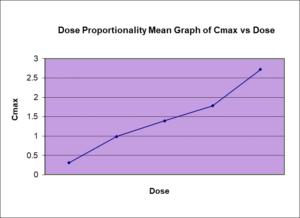Understanding Hepatic Impairment Pharmacokinetic Studies in Drug Development

Hepatic drug metabolism involves enzymatic reactions, including oxidation, reduction, and hydrolysis, which modify the drug q molecule and make it more water-soluble, allowing it to be excreted more easily. The main enzymes involved in drug metabolism are called cytochrome P450 (CYP450) enzymes, and they play a critical role in determining the pharmacokinetics of a drug, including its rate and extent of absorption, distribution, and elimination.
Hepatic impairment is a condition in which the liver is not functioning at its normal capacity. This can be caused by a variety of factors, including liver disease, alcohol abuse, and certain medications. When the liver is impaired, it may affect the way that medications are processed by the body, leading to altered pharmacokinetic parameters. In order to evaluate the effects of hepatic impairment on the pharmacokinetics of a particular drug, a hepatic impairment pharmacokinetic study must be conducted at the drug development stage.
The purpose of a hepatic impairment pharmacokinetic study is to assess the effect of hepatic impairment on the pharmacokinetic parameters of a particular drug. Such clinical studies typically involve a comparison between a group of healthy subjects and different groups of subjects with hepatic impairment with mild, moderate, and severe conditions determined by the scores of Child-Pugh score as per FDA guidance.
For each group, plasma concentration of the drug will be collected at the pre-defined according to the Pharmacokinetic profile of a given drug, and the pharmacokinetic parameters of the drug, the area under the curve (AUC), maximum concentration (Cmax), time to reach maximum concentration (Tmax), and elimination half-life (t1/2), will be calculated for all subjects in different groups during the study. The results of the study can be used to determine if hepatic impairment has an effect on the pharmacokinetics parameters of the drug, as well as if dose adjustments may be necessary for hepatically impaired individuals. The study design will usually be an open-label, single-dose, parallel-cohort study. In the hepatic impairment study, subjects with history of a liver transplant should be excluded.
Once the hepatic and pharmacokinetic data from each subject from normal and hepatic groups of the study has been evaluated, the statistical analysis of a hepatic impairment pharmacokinetics will be carried out by comparing the pharmacokinetic parameters among the healthy and hepatically impaired groups using an analysis of covariance model to analyze natural log-transformed systemic exposure parameters (ie, Cmax, AUCt, and AUC0-∞).
Geometric mean ratios of each of the exposure parameters between subjects with hepatic impairment and healthy control subjects and their 2-sided 90% confidence intervals are calculated. Example; parametric or non-parametric tests, such as an independent samples t-test or Mann-Whitney U test. These tests will provide results of the differences between the healthy and hepatic impairment groups and can be used to determine if hepatic impairment significantly affects the pharmacokinetics parameters of the drug. The regression analysis can be used as per FDA guidance.
To summarize, hepatic impairment can significantly alter the pharmacokinetic parameters of a drug, and it is important to conduct hepatic impairment pharmacokinetic studies during drug development to evaluate the effects of the condition on a drug’s metabolism. These studies involve comparing the pharmacokinetic parameters of a drug between healthy subjects and those with varying degrees of hepatic impairment. The results of these studies can help determine if dose adjustments are necessary for hepatically impaired individuals and can aid in the safe and effective use of the drug. Proper statistical analysis is necessary to accurately evaluate the impact of hepatic impairment on drug pharmacokinetics, and the use of FDA guidance can ensure that these studies are conducted appropriately. Overall, understanding hepatic impairment pharmacokinetic studies is crucial in the development of safe and effective drugs for individuals with liver disease or impairment.
Why Choose BioPharma Services?
Choosing a reputable full-service CRO such as BioPharma Services can offer significant advantages to drug sponsors throughout the drug development process. BioPharma Services offers a range of expertise in various areas of drug development, including hepatic Impairment expertise from a dedicated team of pharmacokinetic experts. Our specialized facilities as well as experienced personnel manage and oversee the drug development process from start to end. By partnering with BioPharma Services, drug sponsors can benefit from efficient and streamlined drug development, reduced costs and timelines, and ultimately, increased chances of regulatory approval and commercial success. BioPharma Services can be your next valuable partner. Discover the difference we can make today.
Written By: Juan He
BioPharma Services, Inc., a Think Research Corporation and clinical trial services company, is a full-service Contract Clinical Research Organization (CRO) based in Toronto, Canada, specializing in Phase 1 clinical trials 1/2a and Bioequivalence clinical trials for international pharmaceutical companies worldwide. BioPharma has clinical facilities both in the USA and Canada with access to healthy volunteers and special populations.



